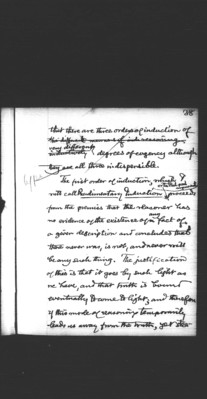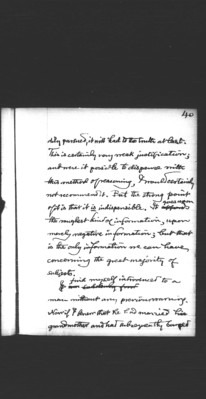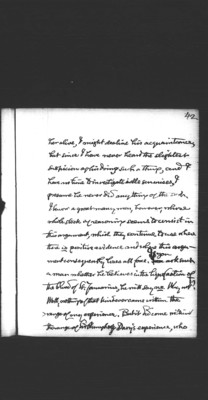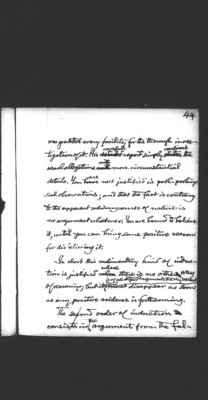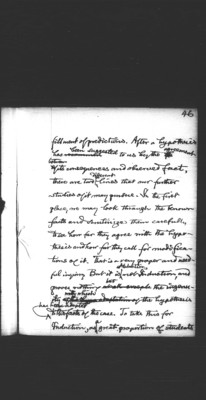Pages
21
38
that there are three orders of induction of very different degrees of cogency although they are all three indispensable.
The first order of induction, which I will call Rudimentary Induction, or the Pooh-pooh argument, proceeds from the premiss that the reasoner has no evidence of the existence of any fact of a given description and concludes that there never was, is not, and never will be any such thing. The justification of this is that it goes by such light as we have, and that truth is bound eventually to come to light; and therefore if this mode of reasoning temporarily leads us away from the truth, yet steadily
22
40
pursued, it will lead to the truth at last. This is certainly very weak justification; and were it possible to dispense with this method of reasoning, I would certainly not recommend it. But the strong point of it is that it is indispensable. It goes upon the roughest kind of information, upon merely negative information; but that is the only information we can have concerning the great majority of subjects.
I find myself introduced to a man without any previous warning. Now if I knew that he had married his grandmother and had subsequently buried
23
42
her alive, I might decline his acquaintance; but since I have never heard the slightest suspicion of his doing such a thing, and I have no time to investigate idle surmises, I presume he never did anything of the sort. I know a great many men, however, whose whole stock of reasoning seems to consist in this argument, which they continue to use where there is positive evidence and where this argument consequently loses all force. If you ask such a man whether he believes in the liquefaction of the blood of St. Januarius, he will say no. Why not? Well, nothing of that kind ever came within the range of my experience. But it did come within the range of Sir Humphrey Davy's experience, who
24
44
was granted every facility for the thorough investigation of it. His careful report simply confirms the usual allegations with more circumstantial details. You are not justified in pooh-poohing such observations; and that the fact is contrary to the apparent ordinary course of nature is no argument whatever. You are bound to believe it, until you can bring some positive reason for disbelieving it.
In short this rudimentary kind of induction is justified where there is no other way of reasoning; but it is of all sound arguments the very weakest and must disappear as soon as any positive evidence is forthcoming.
The second order of induction consists in the argument from the fulfillment
25
46
of predictions. After a hypothesis has been suggested to us by the agreement between its consequences and observed fact, there are two different lines that our further studies of it may pursue. In the first place, we may look through the known facts and scrutinize them carefully to see how far they agree with the hypothesis and how far they call for modifications of it. That is a very proper and needful inquiry. But it is Abduction, not Induction, and proves nothing but the ingenuity with which the hypothesis has been adapted to the facts of the case. To take this for Induction, as a great proportion of students
